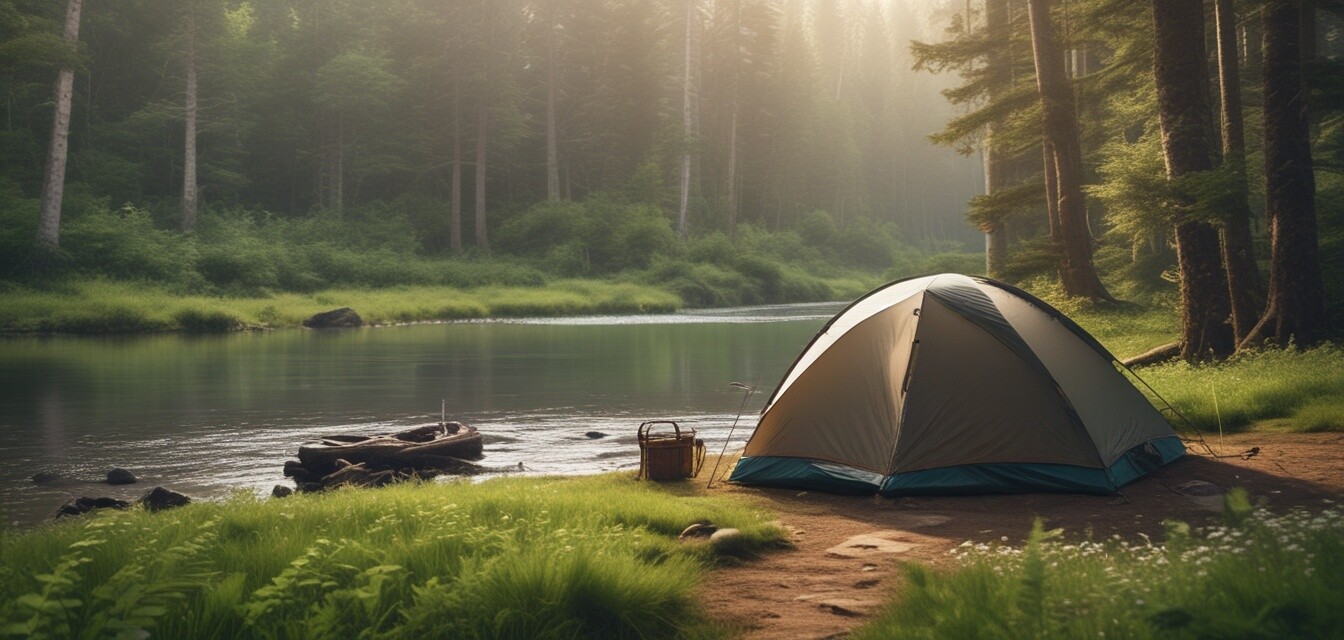
How to Camp Responsibly: Leave No Trace Principles
Key Takeaways
- Understand the importance of responsible camping for environmental preservation.
- Learn the seven core Leave No Trace principles.
- Apply these principles to enjoy camping while protecting nature.
Camping is a wonderful way to immerse yourself in nature, but it comes with a responsibility to protect the environment. The Leave No Trace principles provide a framework for minimizing your impact while enjoying the outdoors. This article will guide you through these essential principles, ensuring that your adventures help preserve the beauty of natural spaces for future generations.
What are Leave No Trace principles?
Leave No Trace is a set of guiding principles designed to promote responsible and sustainable outdoor practices. These principles encourage campers to minimize their ecological footprint and protect natural resources. Let’s explore the seven core principles that every camper should understand:
| Leave No Trace Principles | Description |
|---|---|
| Plan ahead and prepare | Research the area and understand regulations to ensure a smooth experience. |
| Travel and camp on durable surfaces | Stay on paths and camp in designated areas to protect vegetation. |
| Dispose of waste properly | Pack out all trash and dispose of waste appropriately. |
| Leave what you find | Avoid removing natural objects, such as plants and rocks. |
| Minimize campfire impact | Use stoves for cooking and check regional regulations about campfires. |
| Respect wildlife | Observe wildlife from a distance and avoid feeding them. |
| Be considerate of other visitors | Maintain a respectful noise level and keep a clean campsite. |
1. Plan ahead and prepare
Preparation is the cornerstone of responsible camping. Here are some tips to help you:
- Research your destination and its regulations.
- Check weather conditions before your trip.
- Make reservations and permits if necessary.
- Inform someone of your itinerary for safety.
2. Travel and camp on durable surfaces
To minimize damage to the environment, follow these guidelines:
- Use established trails and campsites.
- Avoid walking off-trail to protect delicate ecosystems.
- When camping in a new area, look for previously used sites.
3. Dispose of waste properly
Waste management is crucial for keeping nature clean. Here’s what to do:
- Pack out all trash, including food scraps.
- Use biodegradable soap and dispose of wastewater away from streams.
- If necessary, bring a portable restroom or dig a cat hole for human waste.
4. Leave what you find
Picking up natural items can harm the environment. To protect local ecosystems:
- Do not remove rocks, plants, or artifacts.
- Leave everything in its natural state for others to enjoy.
5. Minimize campfire impact
Campfires can cause lasting damage. Here are some safer alternatives:
- Use portable stoves for cooking.
- If fires are allowed, use existing fire rings and keep them small.
- Burn only small sticks and twigs found on the ground.
6. Respect wildlife
Wildlife plays a significant role in ecosystems. Show respect by:
- Observing animals from a distance.
- Keeping food stored securely to avoid attracting wildlife.
- Understanding local wildlife behavior and ecology.
7. Be considerate of other visitors
Your behavior affects others’ experiences. Here’s how to be a good neighbor in the outdoors:
- Keep noise levels down to allow others to enjoy their surroundings.
- Yield trails to hikers going uphill.
- Maintain a clean camp to respect fellow campers.
Applying the principles to your camping trip
Understanding and implementing the Leave No Trace principles can transform your camping experience. Below are several practical tips for beginners:
Tips for beginners
- Always pack out what you pack in.
- Start with easy trails to build your confidence.
- Join a local camping group to learn from experienced campers.
- Check local regulations and permits before heading out.
Conclusion
Camping is not just about enjoying nature; it's also about preserving it for the future. By following the Leave No Trace principles, you can make a positive impact on the environment while experiencing the great outdoors. Remember to plan ahead, respect wildlife and fellow campers, and leave nature as you found it.
For additional camping tips and where to find the right gear, check out our pages on backpacks and carriers, or if you're interested in more tips and tricks, visit our blog section.